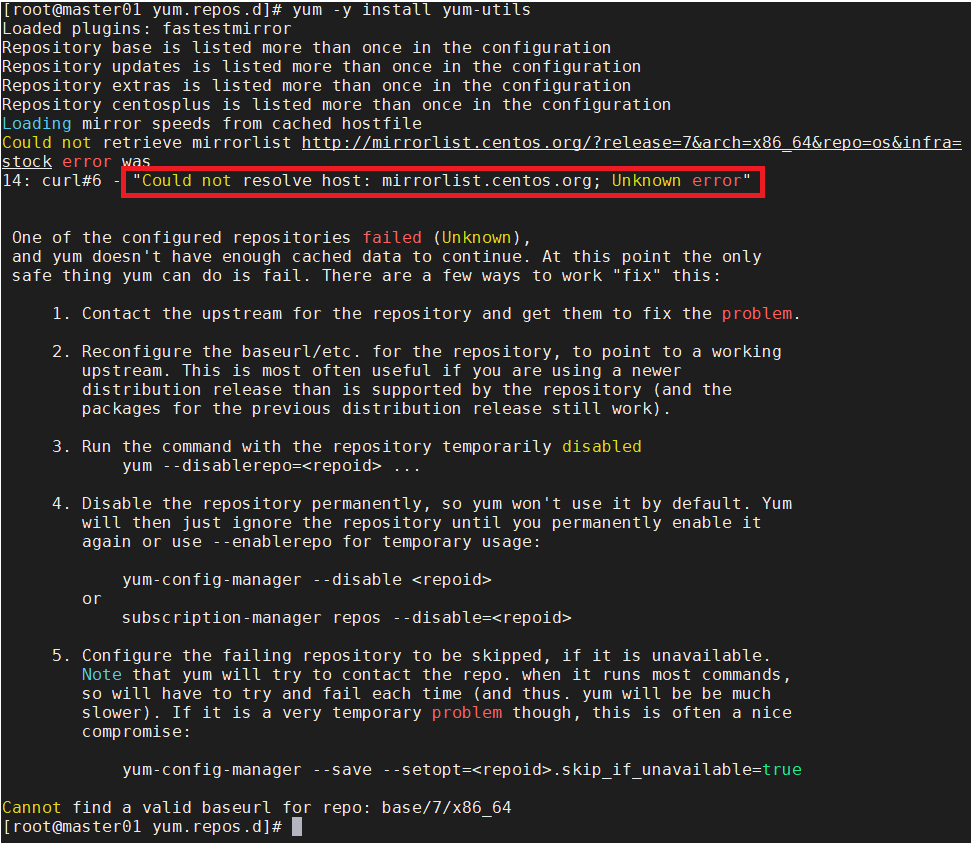目录
1. 什么是Nginx?
2. 为什么使用nginx?
3. 安装nginx
3.1 安装nginx的依赖插件
3.2 下载nginx
3.3 创建一个目录作为nginx的安装路径
3.4 解压
3.5 进入解压后的目录
3.6 指定nginx的安装路径
3.7 编译和安装nginx
3.8 启动nginx
3.9 访问nginx
4. nginx目录结构
5.nginx配置文件
6. nginx的核心功能
6.1 nginx反向代理功能
6.2 nginx的负载均衡
6.3 nginx动静分离
7. nginx的HA高可用的搭建
7.1 高可用的原理--keepalived
7.2 搭建ha高可用
1. 什么是Nginx?
Nginx是一款轻量级的Web 服务器/反向代理服务器及电子邮件(IMAP/POP3)代理服务器,在BSD-like 协议下发行。其特点是占有内存少,并发能力强,事实上nginx的并发能力在同类型的网页服务器中表现较好。
并发能力: 50,000 。
2. 为什么使用nginx?
- Nginx 是高性能的 HTTP 和反向代理的web服务器,处理高并发能力是十分强大的,能经受高负 载的考验,有报告表明能支持高达 50,000 个并发连接数。
- Nginx支持热部署,启动简单,可以做到7*24不间断运行。几个月都不需要重新启动。

3. 安装nginx
nginx可以独立安装在一台服务器--也可以和项目在同一个服务器。
3.1 安装nginx的依赖插件
yum install -y gcc-c++ pcre pcre-devel zlib zlib-devel openssl openssl-devel
如果yum这个命令不能用,请看这篇:Linux查看端口号命令以及yum源无法使用的解决方法-CSDN博客
3.2 下载nginx
nginx: download

3.3 创建一个目录作为nginx的安装路径
mkdir /usr/nginx3.4 解压
tar -zxvf nginx-1.26.1.tar.gz3.5 进入解压后的目录
cd nginx-1.26.13.6 指定nginx的安装路径
./configure --prefix=/usr/nginx3.7 编译和安装nginx
make install3.8 启动nginx
在sbin目录下操作或者配置环境使在任何地方都可以使用:
nginx 启动
nginx -s stop 关闭
nginx -s reload 重新加载配置文件
3.9 访问nginx
http://nginx所在的ip:nginx的端口/

默认端口号:80
4. nginx目录结构

5.nginx配置文件
在/usr/nginx/conf/nginx.conf中。
#user nobody;
#工作的线程数
worker_processes 1;
#error_log logs/error.log;
#error_log logs/error.log notice;
#error_log logs/error.log info;
#pid logs/nginx.pid;
events {
# 每个工作对象允许的连接数
worker_connections 1024;
}
http {
include mime.types;
default_type application/octet-stream;
#log_format main '$remote_addr - $remote_user [$time_local] "$request" '
# '$status $body_bytes_sent "$http_referer" '
# '"$http_user_agent" "$http_x_forwarded_for"';
#access_log logs/access.log main;
sendfile on;
#tcp_nopush on;
#keepalive_timeout 0;
keepalive_timeout 65;
server {
listen 81;
server_name localhost;
location /{
root static;
index main.html;
}
}
#gzip on;
server {
listen 80; # 监听的端口号
server_name localhost; # 监听的主机名.域名
#charset koi8-r;
#access_log logs/host.access.log main;
# 资源/
location / {
root html; #根目录
index index.html main.html; # 资源
}
#error_page 404 /404.html;
# redirect server error pages to the static page /50x.html
#
error_page 500 502 503 504 /50x.html;
location = /50x.html {
root html;
}
# proxy the PHP scripts to Apache listening on 127.0.0.1:80
#
#location ~ \.php$ {
# proxy_pass http://127.0.0.1;
#}
# pass the PHP scripts to FastCGI server listening on 127.0.0.1:9000
#
#location ~ \.php$ {
# root html;
# fastcgi_pass 127.0.0.1:9000;
# fastcgi_index index.php;
# fastcgi_param SCRIPT_FILENAME /scripts$fastcgi_script_name;
# include fastcgi_params;
#}
# deny access to .htaccess files, if Apache's document root
# concurs with nginx's one
#
#location ~ /\.ht {
# deny all;
#}
}
# another virtual host using mix of IP-, name-, and port-based configuration
#
#server {
# listen 8000;
# listen somename:8080;
# server_name somename alias another.alias;
# location / {
# root html;
# index index.html index.htm;
# }
#}
# HTTPS server
#
#server {
# listen 443 ssl;
# server_name localhost;
# ssl_certificate cert.pem;
# ssl_certificate_key cert.key;
# ssl_session_cache shared:SSL:1m;
# ssl_session_timeout 5m;
# ssl_ciphers HIGH:!aNULL:!MD5;
# ssl_prefer_server_ciphers on;
# location / {
# root html;
# index index.html index.htm;
# }
#}
}
6. nginx的核心功能
6.1 nginx反向代理功能
正向代理
代理的为客户端,对于服务器不知道真实客户的信息。例如:翻墙软件。

反向代理服务器
代理的为服务器端。对于客户来说不知道服务器的信息。例如: nginx。

项目部署例:

准备web项目
准备nginx
启动web项目:

配置nginx:
server {
listen 82;
server_name localhost;
location /{
# 代理的服务器地址
proxy_pass http://192.168.111.132:8080;
}
}启动ngin:
./usr/nginx/sbin/nginx
6.2 nginx的负载均衡
负载均衡(Load Balance [4]):其意思就是把请求分摊到多个操作单元上进行执行,例如Web服务器、FTP服务器、企业关键应用服务器和其它关键任务服务器等,从而共同完成工作任务。
web项目必须搭建的为集群模式。

web服务器项目至少搭建2台以上。
运行两个web工程项目:
springboot项目:

运行springboot项目:java -jar xxx.jar

注意: 端口号别忘记放行。
配置nginx完成负载均衡:

重新加载nginx配置
/usr/nginx/sbin/nginx -s reload测试

负载均衡的策略
默认为轮询。
权重策略: 服务器硬件配置不同时。

ip_hash策略: 根据访问者客户的ip固定访问对应的web服务器。

花钱买第三方策略插件。
6.3 nginx动静分离
动:动态资源(接口)
静:静态资源 (css js image)。
分离: 之前我们把静态资源和动态资源全部放在web服务器下。 把静态资源放入nginx服务器下。动态资源web服务器下。




7. nginx的HA高可用的搭建
7.1 高可用的原理--keepalived

7.2 搭建ha高可用
俩台机器:

安装keepalived:
yum install -y keepalived默认安装在/etc/keepalived下

修改keepalived.conf配置文件:
global_defs {
notification_email {
acassen@firewall.loc
failover@firewall.loc
sysadmin@firewall.loc
}
notification_email_from Alexandre.Cassen@firewall.loc
# ip的地址
smtp_ server 192.168.111.188
smtp_connect_timeout 30
router_id 192.168.111.188
}
# 执行脚本
vrrp_script chk_http_port {
script "/usr/local/src/nginx_check.sh"
interval 2 # 每2s执行一次该脚本
weight -20 # keepalive宕机 权重-20 优先级
}
vrrp_instance VI_1 {
state MASTER # 角色
interface ens33 # 网卡名
virtual_router_id 51 # id 保证主从相同
priority 100 # 优先级 主节点大于从节点
advert_int 1
authentication {
auth type PASS
auth pass 1111
}
virtual_ipaddress {
192.168.111.50 # 虚拟ip. 使用逗号隔开
}
track_script {
chk_http_port # 追踪nginx脚本
}
}从节点
global_defs {
notification_email {
acassen@firewall.loc
failover@firewall.loc
sysadmin@firewall.loc
}
notification_email_from Alexandre.Cassen@firewall.loc
# ip的地址
smtp_ server 192.168.111.189
smtp_connect_timeout 30
router_id 192.168.111.189
}
# 执行脚本
vrrp_script chk_http_port {
script "/usr/local/src/nginx_check.sh"
interval 2 # 每2s执行一次该脚本
weight -20 # keepalive宕机 权重-20 优先级
}
vrrp_instance VI_1 {
state BACKUP # 角色
interface ens33 # 网卡名
virtual_router_id 51 # id 保证主从相同
priority 90 # 优先级 主节点大于从节点
advert_int 1
authentication {
auth type PASS
auth pass 1111
}
virtual_ipaddress {
192.168.111.50 # 虚拟ip. 使用逗号隔开
}
track_script {
chk_http_port # 追踪nginx脚本
}
}nginx_check.sh
#!/bin/bash
# 检查是否开启nginx---统计nginx进程的个数
A=`ps -C nginx --no-header |wc -l`
if [ $A -eq 0 ];then
pkill -9 keepalived
fiA=`ps -C nginx --no-header |wc -l`
if [ $A -eq 0 ];then #如果nginx没有启动就启动nginx
/app/nginx/sbin/nginx #重启nginx
if [ `ps -C nginx --no-header |wc -l` -eq 0 ];then #nginx重启失败,则停掉keepalived服务,进行VIP转移
pkill keepalived
fi
fi
修改权限: chmod 777 nginx_check.sh
启动:
nginx
keepalived systemctl start|stop keepalived



















